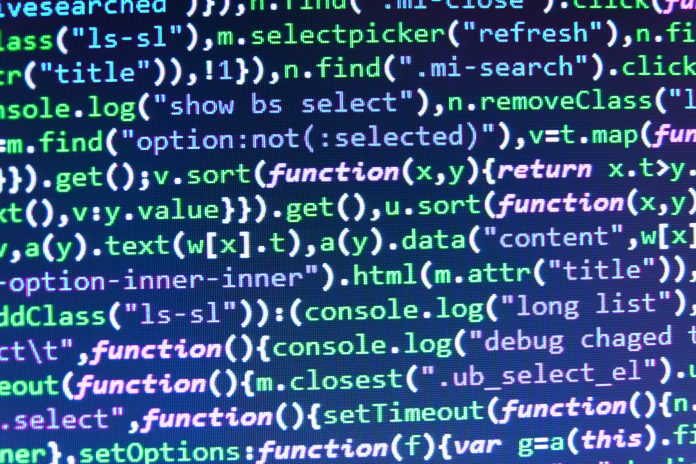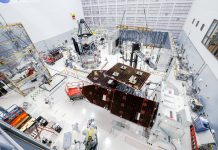Dr John Yardley, Managing Director of Threads Software Ltd, details precisely why mathematics and computer science are key to the future
Many people associate mathematics with topics such as arithmetic, geometry, trigonometry, algebra and calculus when, in fact, it is more far-reaching than that. It encompasses the whole philosophy of dealing not just with numbers, but with logic and the validity of logical propositions. We have all heard computers described as number crunchers or glorified calculators, but the mathematical basis for computers is far more fundamental than defining, say, what the product of two numbers or the area under a curve might be.
The extent to which mathematics a fundamental intellectual tool in computing today
Indeed, mathematics is about as fundamental to computing as you can get. It was Turing’s original 1938 paper “On Computable Numbers…” that laid the foundations of modern-day computers. His paper was a mathematical thesis and published in a learned mathematical journal. However, besides the formal description of logic and the calculations involved in the engineering design of computers – which are, of course, significant – I am not sure that mathematics now plays a significant role in either their design or their use. Perhaps I should qualify that by saying that although mathematical principles are at the core of computer design, computer designers do not need to know them any more than they need to know how calculus is being used to determine the trajectory of a spacecraft in a computer game or that circuit designers need to understand the quantum theory behind semiconductors.
The role computing increasingly plays as a key component in mathematical problem-solving
However, to reverse the proposition, there can be no doubt that computing is a fundamental intellectual tool of mathematics and is a key component in problem-solving. Whether the task is simulating the weather or flying an aircraft, the models that are con- structed by a computer are above all mathematical. They can come in the form of formulae describing physical behaviour, statistical methods evaluating probabilities to truth tables governing logical processes. What they all have in common is that they can be represented digitally. And if you can represent them digitally, you can compute them. Research today should not simply be about what we can do with computers, but what can we represent digitally. We know that neurons are the fundamental “computing” units of the human brain. These can be simulated digitally, so in theory, there is no reason why a simulated brain would not behave exactly as the human brain it copies. Whether it is self-aware is perhaps not a relevant question, but it would be able to fool another human being that it was self-aware. Indeed, that is exactly Turing’s definition of machine intelligence.
How these areas of research benefit society
Does putting someone out of a job where they have a high risk of death benefit society? Does having more leisure time benefit society? “Benefit” is an impossible word to quantify. Steven Pinker goes to great lengths to show how, despite the perception that life is getting increasingly dangerous, this is not the case, in fact, it is becoming increasingly safe. Fewer accidents, fewer wars, better healthcare and nutrition, fewer causes of death.
What drives us as humans is the need to explore and to innovate and any society that stops doing that becomes predictable and boring. It cannot happen because evolution has programmed us to improve our chances of survival. In less philosophical terms, there can be no doubt that most innovations that come from our ability to model (which is what mathematics is) are generally beneficial. Driverless cars should ultimately cause fewer accidents.
The research priorities in this area
Our research priorities should be first to demystify mathematics as some geeky subject that you have to have an IQ of 200 to study. Mathematics is not just about tensor calculus and partial differential equations. As said, it is primarily about modelling things so you can predict the behaviour of something. That something doesn’t have to be a nuclear explosion. It can be some everyday situation such as hospital waiting times and indeed, it is these models that can often yield the most immediate benefit.
We also need to be researching ideas that could not be deployed on current technology because by the time the idea has been developed, the technology will likely be there.
That said, we should not be abstracting ourselves from fundamental principles and let high-power computing do all the heavy lifting. Just because we can use a calculator on a smartphone, it does not mean we should not bother learning our tables.
In my own specialist area of speech recognition, I have noticed how the trend is to develop “neural networks” that “learn” how to recognise speech in much the same way as the human brain. While this is a great technology, it does mean that researchers have no longer bothered to comprehend phonetics, linguistics, semantics and all the other things that humans use when understanding speech. As a result, we have to wait until the machines have learnt all the attributes that we have evolved with over millions of years. We should not be throwing that knowledge away.
We also need to realise that we should be exploiting great ideas, not great business plans. Our investment in mathematics and computer science is targeted at academia and large business. Computing is one of the few areas where you do not need a massive team and massive capital outlay to prove some great ideas. We need people that can recognise them, exploit them and encourage people to develop them.
John has a PhD in Electrical Engineering from the University of Essex and a BSc in Computer Science from City University, London.












25+ year educator replying here, guy who spends his days preaching the gospel of K-12 STEM classroom integration.
Articles like this do us little good, and probably do us actual harm, in trying to move the dial in a real way with real teachers and administrators for the benefit of real students. It’s one thing to have an opinion when you have no discernible experience on the business side of a teacher’s desk. It’s another to wave that lack in readers’ faces by saying things like “I don’t know what mathematics a computer scientist needs to know, but I do know we use computers to solve math problems.” (Still facepalming here)
There are clearly two sets of players in this lobbying game, those who sincerely want to see kids get better education, and those who run businesses and want to cut the cost of their programming workforce. Anybody in K-12 education is going to at least give the former group a listen. The latter group? Nah, go pound sand.
Fantastic comment. My sentiments exactly.